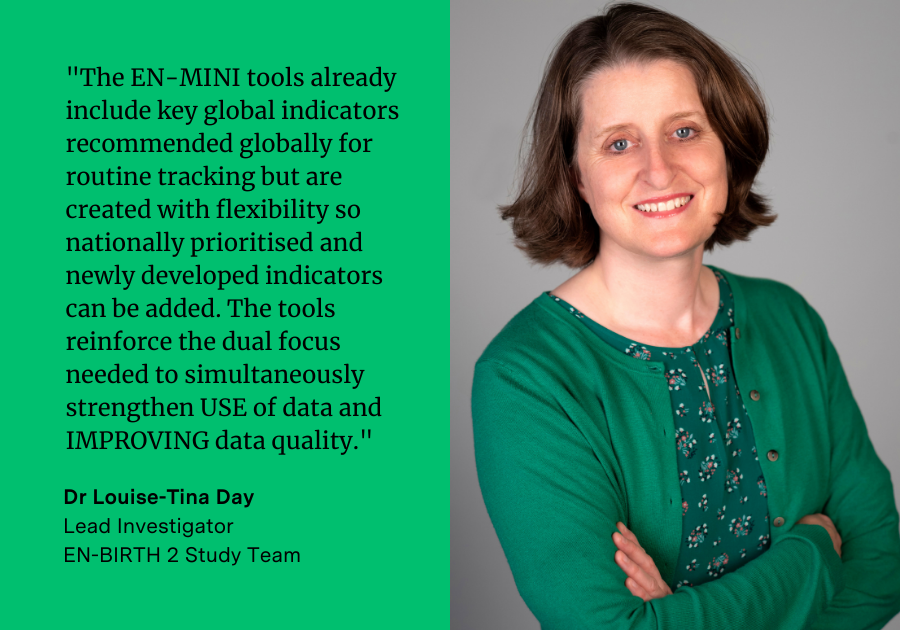
A new set of user-friendly tools for improving data to track progress towards ending preventable newborn deaths, stillbirths and disabilities are now freely available online.
The Every Newborn-Measurement Improvement for Newborn & Stillbirth Indicators (EN-MINI) tools are designed to ensure the right data can be collected at the right time for use at the right level of the health system.
The EN-MINI tools are designed to guide priority actions to improve availability, quality and use of core newborn and stillbirth indicators in routine health information systems in high-burden neonatal mortality countries.
The suite of tools, which generate automated reports, were created by the Every Newborn – Birth Indicators Research Tracking in Hospitals (EN-BIRTH) 2 study collaboration which includes the Centre for Maternal, Adolescent, Reproductive & Child Health (MARCH) at the London School of Hygiene & Tropical Medicine (LSHTM); Data for Impact (D4I); Ifakara Health Institute, Tanzania; and icddr,b, Bangladesh, with support from the United States Agency for International Development (USAID).
The EN-MINI tools currently include seven tools designed to MAP newborn data availability, IMPROVE newborn data quality and assess USE of newborn data for decisions.
Dr Louise-Tina Day, the lead investigator in LSHTM’s EN-BIRTH 2 study team, said: “The EN-MINI tools already include key global indicators recommended globally for routine tracking but created with flexibility so nationally prioritised and newly developed indicators can be added. The tools reinforce the dual focus needed to simultaneously strengthen USE of data and IMPROVING data quality.”
Dr Kim Peven who worked on the co-creation of the MAPPING tool said: “Our tool captures the burden of documentation in data systems that urgently need streamlining.”
The Every Newborn Action Plan To End Preventable Deaths sets a framework to end preventable newborn deaths and stillbirths by 2035. The plan, which acknowledges the “unfinished agenda” of the Millennium Development Goals for women’s and children’s health, aims to save almost 3 million lives each year through better quality maternal and newborn care; increased access to and investment in care; enhanced measurement and accountability; and increased collaboration between stakeholders at all levels.
The highest burden of stillbirths, newborn deaths and disability occurs in settings with the least data on coverage and quality of care. Core indicator data on coverage, equity and quality of care are necessary to track progress towards achieving universal health coverage to meet the Sustainable Development Goals (SDGs) and Every Newborn Action Plan targets.
Professor Joy Lawn, co-investigator in the EN-BIRTH 2 study team, said: “We need data we can trust and is timely and EN-MINI tools can help close this data gap in routine health information systems”.
Ms Harriet Ruysen, Midwife and Research Fellow at LSHTM, said: “As a midwife, I understand the challenges of collecting high quality data while prioritising family-centred care. The EN-MINI tools are designed to include our voices, and those of all frontline health workers who record data used in routine health information systems as part of their scope of practice.”
EN-MINI tools
LSHTM's short courses provide opportunities to study specialised topics across a broad range of public and global health fields. From AMR to vaccines, travel medicine to clinical trials, and modelling to malaria, refresh your skills and join one of our short courses today.



